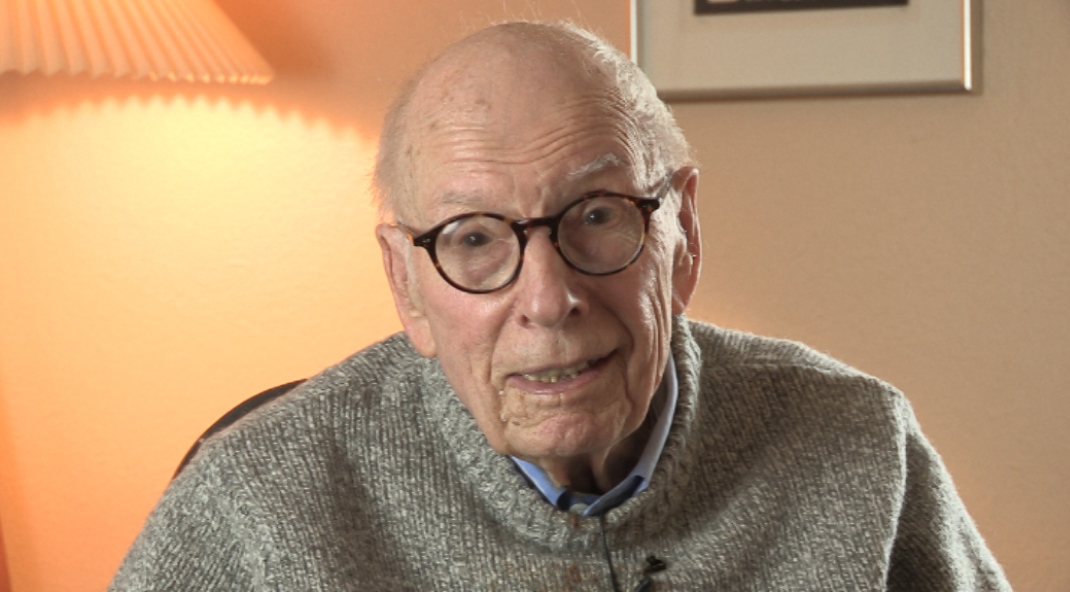NEXT STORY

Joining the inhabitants of ‘Mount Olympus’
RELATED STORIES

NEXT STORY

Joining the inhabitants of ‘Mount Olympus’
RELATED STORIES


|
Views | Duration | |
|---|---|---|---|
| 11. The charming Mr and Mrs Thomas H Morgan | 56 | 02:48 | |
| 12. Too generous to be my daddy! | 52 | 00:36 | |
| 13. Joining the inhabitants of ‘Mount Olympus’ | 53 | 02:33 | |
| 14. How far down does a blush go? | 60 | 01:57 | |
| 15. Meeting Father Time | 58 | 01:59 | |
| 16. My musical Swiss grandfather | 54 | 01:39 | |
| 17. Edwin Conklin versus Hans Driesch | 65 | 03:16 | |
| 18. My interests in evolutionary and developmental biology | 61 | 01:27 | |
| 19. The biddies of Harvard | 64 | 01:30 | |
| 20. Cracking calculus | 66 | 03:00 |


He was just like Dr Parker. And he said, we've always been confused, we have the same beards.
And he said, 'When my daughter was quite small, she stopped Dr Parker in the street and said, “Daddy, can I have a nickel for an ice cream cone?” And he gave her a dime. And she looked at the dime and she said, “You're not my daddy!”' Because Morgan was famous for being stingy.
John Tyler Bonner (born in 1920) is an emeritus professor in the Department of Ecology and Evolutionary Biology at Princeton University. He is a pioneer in the use of cellular slime molds to understand evolution and development and is one of the world's leading experts on cellular slime molds. He says that his prime interests are in evolution and development and that he uses the cellular slime molds as a tool to seek an understanding of those twin disciplines. He has written several books on developmental biology and evolution, many scientific papers, and has produced a number of works in biology. He has led the way in making Dictyostelium discoideum a model organism central to examining some of the major questions in experimental biology.
Title: Too generous to be my daddy!
Listeners: Christopher Sykes
Christopher Sykes is an independent documentary producer who has made a number of films about science and scientists for BBC TV, Channel Four, and PBS.
Tags: Thomas H Morgan
Duration: 36 seconds
Date story recorded: February 2016
Date story went live: 14 September 2016